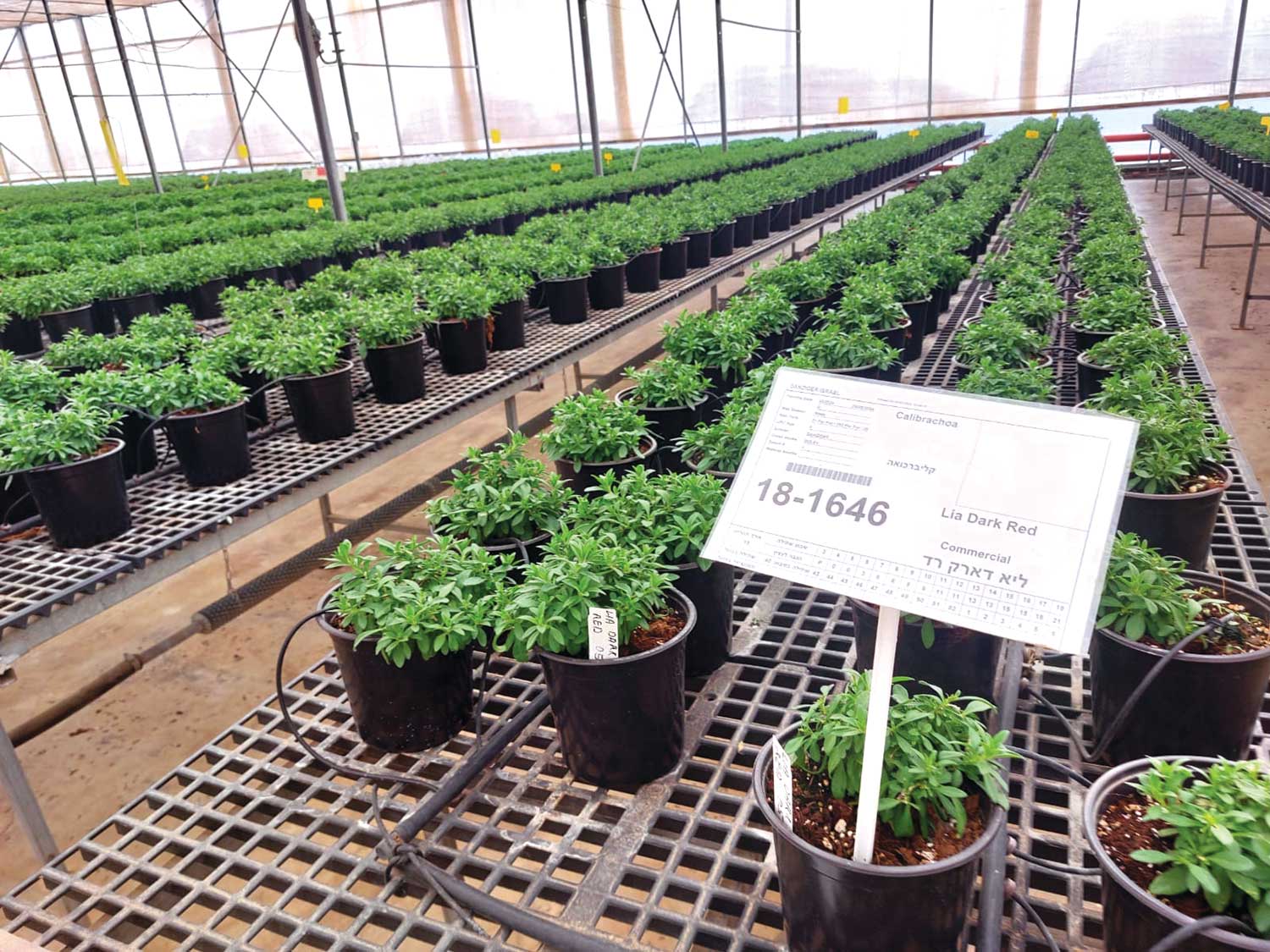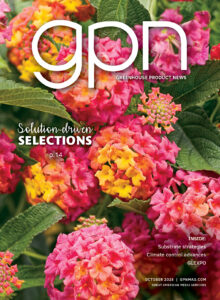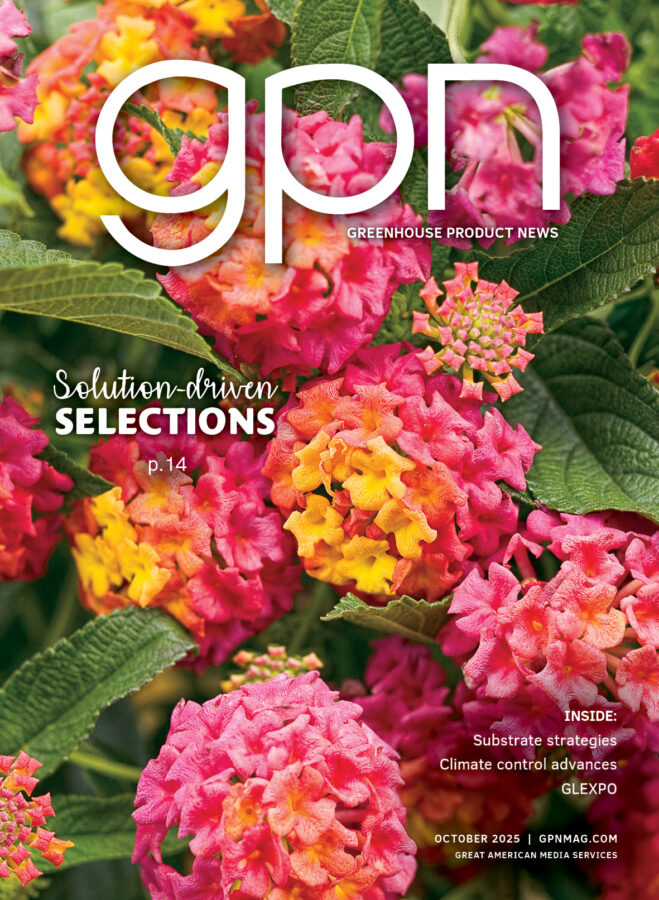
Breeding award-winning calibrachoa
Breeders strive to create the perfect plant, but the laundry list of “must-have” attributes is long — new, unique, better, easy-to-grow, consistent, long-lasting and attention-grabbing.
So, what does it take to develop an award-winning variety? The answer includes many parts when it comes to calibrachoa. Innovations are changing what we think about this garden workhorse. Danziger’s ‘Lia Abstract Lemon Cherry’ calibrachoa, a recent National Garden Bureau’s Green Thumb Award winner, helps provide answers.
“When looking to develop or improve a new variety, we always put ourselves in a grower frame of mind,” said Mike Fernandez, Danziger’s market manager for North America. “We are always breeding with a two-fold purpose: What can we do to make our varieties better for the grower and more enjoyable for the home gardener?”
SIZE MATTERS
The company has been focusing on developing calibrachoa series that fit specific grower needs, including grouping plants according to size, performance and usage. Danziger’s Colibri calibrachoa are selected for small pot or basket production, and its Lia series is perfect for larger pots and hanging baskets.
“Growers have told us varieties that are sorted into a series makes things easier for them,” Fernandez said. “When you choose plants from our calibrachoa series, you know you’ll have consistent results across colors and that the plants will perform well in your chosen container.”

BREEDING SPECIFICS
Modern calibrachoa breeding has also focused on key factors for both growers and consumers. Keeping plants compact and colorful is a top priority.
“We have focused our breeding work on developing calibrachoa with tighter internodes that keep the plants more compact yet still packed with blooms,” said Amir Zuker, vice president research and development manager at Danziger. “Compact varieties create a nice selling pot, and the lower footprint allows a grower to pack more pots into an area.”
The company is also prioritizing lower input needs to minimize chemical use, reduce labor costs and help growers reach sustainability goals.
“We are selecting varieties that meet our criteria without PGR usage,” Zuker said. “They’re naturally compact, so growers can use less chemicals, which is a time-saver and can be more sustainable.”
Unique colors, novelty patterns and earlier flowers are also a priority. The impact of varieties like ‘Lia Abstract Lemon Cherry’ shows that colors can create excitement around calibrachoa.
“Many colors and color combinations present a genetic challenge,” Zuker said. “We are working on stabilizing and controlling many novelties, focusing on selections that flower early and produce blooms from the base of the plant all through the stems.”
Danziger’s breeders are also focused on longevity, with flowers that maintain their color, not only for grower performance but also to make sure varieties have outstanding garden performance.

DRIVEN BY RESEARCH
Trials, both internal and external, are providing insights that help Danziger create superior calibrachoas.
“Calibrachoa have really become a must-have annual in the last several years,” Fernandez said. “They perform well at retail, drawing customers in. They’re also great performers for home gardeners. One of the reasons is our selection process.”
Both experts say trialing in different environmental conditions around the globe has advanced breeding and selection work. In Israel, trials are focused on heat tolerance and stable flowers that don’t burn. In Michigan, where there is a lot of rain, they’re studying flower recovery. In Georgia, they monitor the effects of humidity. Additional trials are taking place in the Netherlands, Germany and other North American locations.
“Calibrachoa will sometimes behave differently under different environmental conditions,” Zuker said. “We are looking for varieties that are less sensitive to their environment, those that are consistent no matter what.” Zuker points to Danziger’s ‘Ombre Pink’ calibrachoa as an example.
“Our trials have shown this variety doesn’t need a dedicated growing condition,” Zuker said. “It behaves no matter what issues or mistakes you may face as a grower, providing strong color and exceptional habit.”
Danziger also spends significant time and resources screening for pH sensitivities and disease in new varieties. Only outstanding performers are brought to market. The information gathered in these trials also helps their experts spot growing issues early, key to grower success.
“Our advanced trials give us better research results,” Fernandez said. “The data we collect helps us better understand the needs of the market. But we don’t stop there. Our data is paired with conversations with growers. We understand the challenges they face and can offer accurate recommendations for growing.”









 Video Library
Video Library 


















